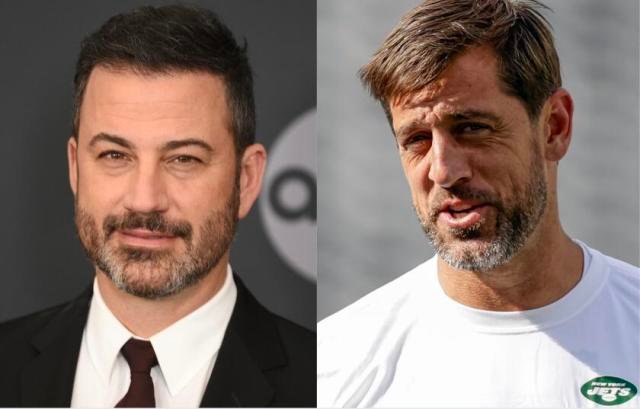The ongoing feud between Jimmy Kimmel and Aaron Rodgers escalated on Monday night when, during his late-night show, Kimmel devoted about seven minutes to criticizing the New York Jets quarterback. This came after Rodgers falsely accused Kimmel of being among the more than 100 individuals named in Jeffrey Epstein’s controversial “list.” The list, released on January 4, implicated celebrities, politicians, and billionaires, linking them to Epstein, who died by suicide in a Manhattan jail cell in 2019 while awaiting trial on federal sex trafficking charges. Notably, Kimmel was not included in the list.
Despite this, Kimmel’s TV response raised questions about the appropriateness of defending oneself and whether it is acceptable to deviate from the high road, especially when personal safety and career are at stake.
The rift began when Rodgers, discussing Epstein’s list on “The Pat McAfee Show” on January 3, claimed that people, including Jimmy Kimmel, were hoping the list wouldn’t be made public. His comments prompted apologies from McAfee and ESPN. In response, Kimmel, on the same day, clarified on social media that he had no connection to Epstein and warned Rodgers about the consequences of his words on Kimmel’s family.
During the subsequent “Jimmy Kimmel Live!” episode, Kimmel addressed Rodgers’ comments, expressing the impact on his life due to false accusations. He highlighted the absurdity of claims linking him to celebrities like Tom Hanks and Oprah, with Kimmel and his family becoming targets of misguided beliefs. Kimmel went on to question Rodgers’ intelligence, referencing the quarterback’s past comments about COVID, and challenged him to apologize.
Experts suggest that while Kimmel’s reaction to sex trafficking accusations might be deemed justified, succumbing to the urge to attack the attacker could potentially cause more harm than good. According to licensed professional counselor Carl Nassar, reacting to shame typically falls into one of three categories: avoidance, attack, or approach. While an attack response may offer momentary satisfaction, Nassar cautions that it often escalates feuds and reduces the likelihood of receiving an apology.
Despite this, Nassar acknowledges healthy elements in Kimmel’s response, such as a desire to define himself positively and emphasize the responsibility of public figures like Rodgers. Nassar also praises Kimmel’s willingness to accept an apology as a mature and healthy response.
In response to Kimmel’s monologue, Rodgers, on Tuesday, did not offer an apology but denied accusing Kimmel of serious allegations. He expressed a desire to move on while also making a dig at Kimmel’s educational background and joke-writing team.
As the feud unfolds, the dynamics of how individuals respond to public attacks come under scrutiny. The delicate balance between self-defense, escalation, and resolution raises broader questions about the evolving nature of public discourse, accountability, and the role of celebrities in shaping public opinion. Whether this feud will reach an amicable resolution or further intensify remains uncertain, but it serves as a compelling case study in the complexities of defending one’s reputation in the public eye.
